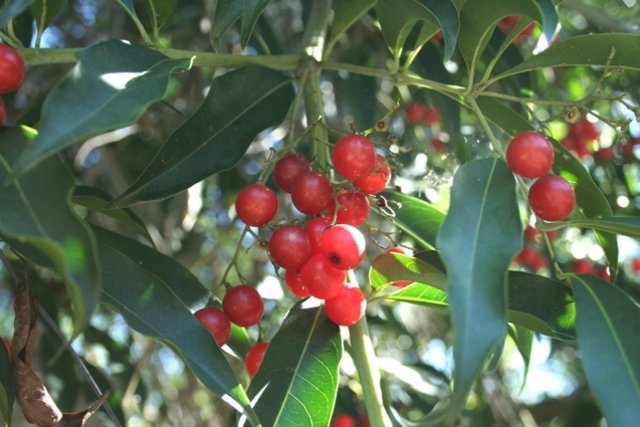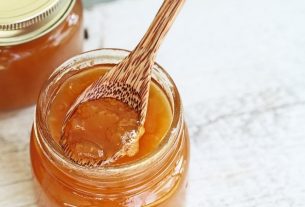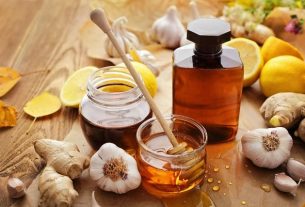Pholia magra is a medicinal plant, of the species Cordia ecalyculata Vellused as a supplement to help with weight loss diets, as it contains substances with diuretic and thermogenic action, which help reduce appetite, eliminate excess fluids and increase fat burning.
The normally used parts of this plant are the leaves, from which the active substances are extracted, and can be consumed in the form of tea or capsules, which can be found in health food stores or compounding pharmacies.
Pholia lean should be used with the guidance of a doctor or other healthcare professional who has experience with the use of medicinal plants.

What is it for
Skinny Pholia is indicated for:
- Assist in weight loss diets;
- Combat localized fat and cellulite;
- Combat fluid retention;
- Increase energy expenditure;
- Speed up metabolism;
- Strengthen the heart and protect the coronary arteries, reducing the risk of heart problems.
Lean Pholia is rich in caffeine, allantoin and allantoic acid, which are the active substances responsible for its diuretic, thermogenic, appetite-reducing and energizing properties.
Some studies carried out with rats in the laboratory also showed that Pholia lean can help in the treatment of herpes simplex type 1, as it helps to reduce the multiplication of the virus. (1,2). However, studies in humans are still needed to prove this effect.
Although it has health benefits, lean Pholia does not replace medical treatment and should be used with the guidance of a doctor or herbalist.
How to drink
The parts used of Pholia lean are its leaves from which active substances with medicinal properties are extracted.
The main ways to use lean Pholia are:
1. Slim Pholia in capsules
Pholia lean capsules must be taken orally and the normally recommended dose for adults is 125 to 300 mg, taken 30 minutes before each meal, twice a day, or as prescribed by a doctor.
2. Lean Pholia Tea
Pholia lean tea should be made with the dehydrated leaves or powder of this medicinal plant.
Ingredients
- 2 tablespoons of powder or dehydrated leaves;
- 1 liter of water.
Preparation mode
Boil the water and then turn off the heat. Add the lean Pholia to this water, cover and let it rest for about 5 to 10 minutes. Strain and drink 1 cup up to 3 times a day, 30 minutes before meals.
Before starting to use lean Pholia, it is important that you consult your doctor, as this will allow you to indicate the safe amount for use and its duration.
Possible side effects
The side effects of Pholia lean are not yet known, therefore, its use should only be done with medical advice or from a health professional with experience in medicinal plants.
Who shouldn’t use
Lean Pholia should not be used by children, pregnant or breastfeeding women.
Furthermore, lean Pholia should not be used by people who have high blood pressure, heart problems, kidney disease, diabetes, insomnia or sensitivity to caffeine, as it increases heart rate and acts as a stimulant.
Pholia lean should not be used by people who are allergic to this medicinal plant or who are undergoing lithium treatment.
Bibliography
- HAYASHI, Kyoko; HAYASHI, Toshimitsu; MORITA, Naokata et al. Antiviral Activity of an Extract of Cordia salicifolia on Herpes Simplex Virus Type 1. Planta Med. Vol 56. 5 ed; 439-443,
- ALEXANDRE, Karla P.; YASUDA, Flávio S.; MARQUES, Luis Carlos et al. Do guacatonga (Casearia sylvestris SW) and porangaba (Cordia salicifolia or Cordia ecalyculata Vell / boraginaceae) have an effect on weight loss?. Brazilian Journal of Natural Sciences. Vol 3. 1 ed; 2018
- TEIXEIRA, Gesiane da Silva; et al. Medicinal plants, herbal medicines and/or nutraceuticals used to control obesity. FLOVET – Bulletin of the Flora, Vegetation and Ethnobotany Research Group. 1. 6; 27-42, 2014
- PELIZZA, Maqueli Carina. Use of Cereus sp. and Cordia ecalyculata Vell. how to lose weight: a review. Pharmacy Course Completion Work, 2010. Faculty of Pharmacy of the Federal University of Rio Grande do Sul.
- ARREBOLA, MRB; et al. Study of the lipid components of the seeds of three species of the genus Cordia L. (Boraginaceae). Brazilian Journal of Pharmacognosy. 14. 1; 57-65, 2004

Sign up for our newsletter and stay up to date with exclusive news
that can transform your routine!
Warning: Undefined array key "title" in /home/storelat/public_html/wp-content/plugins/link-whisper-premium/templates/frontend/related-posts.php on line 12
Warning: Undefined array key "title_tag" in /home/storelat/public_html/wp-content/plugins/link-whisper-premium/templates/frontend/related-posts.php on line 13



